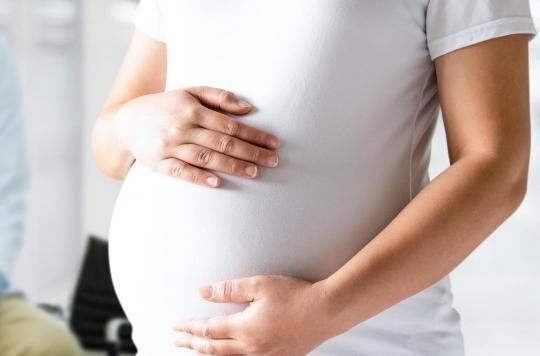Medications based on sodium valproate, contained in particular in Depakine, taken during pregnancy multiply by five the risks of developmental disorders in the future baby.

- 5% of children whose mother took Depakine have a risk of neurological disorders against 0.89% for the others.
- These figures are still underestimated, according to the researchers.
- No matter when the mother takes this drug during pregnancy, the risks are still great.
Depakine is a drug prescribed to fight against epilepsy or bipolar disorder. In 2016, an investigation was opened because of the danger it presents during pregnancy for both the mother and the future baby. The trials are still ongoing. Birth defects have been reported and scientifically proven. A new study, conducted by researchers from Health Insurance (CNAM) and the Medicines Agency (ANSM) and published on October 22 in the journal Scientific Reportshas shown that this drug can also lead to fetal developmental disorders.
Underestimated numbers
Children whose mothers were treated with the drug Depakine during pregnancy are five times more likely to develop developmental disorders in early childhood. The researchers analyzed the medical data of more than 1.7 million children born in France between 2011 and 2014. They followed them until 2016. Of the 991 mothers who took this drug, 50 children were diagnosed with a neurodevelopmental disorder. This corresponds to a proportion of 5% against 0.89% in those whose mother did not take Depakine. Children exposed to sodium valproate during pregnancy are 5.1 times more likely to have mental retardation, 4.7 times more motor, learning or language disorders, and 4.6 times more autism spectrum.
These figures are still underestimated, according to the researchers. “The limited follow-up in the study (until the age of 3.6 years on average, and up to 5 years at the most) probably led to the identification of only the most severe cases which give rise to a diagnosis or a early management from the very first years of life, while less severe cases will only be detected with a longer follow-up period”, adds Rosemary Dray-Spira, lead author of the study.
No more serious moment during pregnancy
The trimester of pregnancy during which the mother takes the drug has no influence on the future disorders of the child. “The available studies could not establish whether the risk differed according to the period of exposure”, noted the researcher. She adds that this current study did not show that the risk increases only in the first trimester. “The risk is lower in children exposed to lower doses of the drug than in those exposed to higher doses“, she also notes.
Since 2015, the prescription of Depakine has been severely restricted for women of childbearing age. Today, it is only so if no alternative exists. Sanofi is accused of having been slow to inform about these risks during pregnancy, which have been known since 1980. He is currently under investigation for “manslaughter”, “aggravated deception” and “unintentional injuries”.
.















